Part One: the studio albums.
Part One: the studio albums.
Part One: the studio albums.
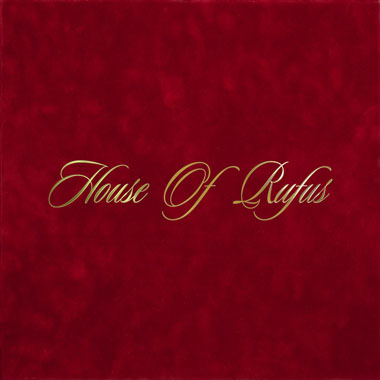
Oh Rufus, you wonderful scamp you.
With the looks of a film star, the voice of an angel, the tabloid lifestyle of a rock and roll hellraiser and a positively obsessive devotion to opera and showtunes, Rufus Wainwright may not be every conservative party voter’s cup of tea but for many of us, he is an idol. A complex, idiosyncratic, baffling, seductive, charming and oh so talented artist, it’s clear that Rufus decided, at an early age, to grab life by the horns and try his hand at everything; and we probably do mean everything! Somehow, at the age of only 38, that incredible life in progress has resulted in a body of work that (possibly) outshines that of the rest of his entire family. Which is saying something, considering his immediate family consists of Martha Wainright, Kate McGarrigle and the incredible Loudon Wainwright III. Nevertheless, it’s true and now this body of work has been collected, collated, filed and presented in a beautiful, red velvet box. A collection of velvet, glamour and guilt, or so it says inside. Ladies, gentlemen and those who aren’t too sure, we give you the House Of Rufus, a collection of material so comprehensive, so exhaustive and so utterly fabulous that we’ve had to resurrect the Back Catalogue feature just to do it justice.
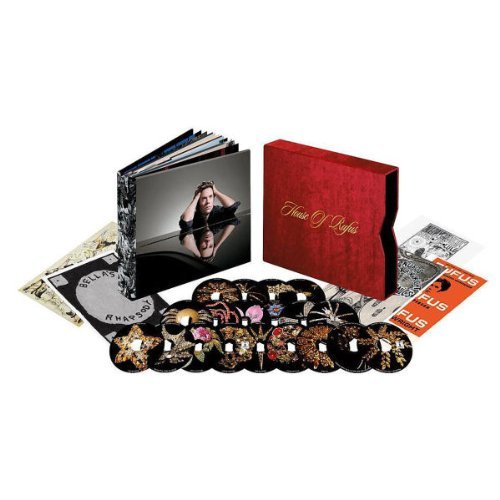
House of Rufus contains almost everything a Rufus Wainwright fan could want. Once you’ve made your way through its entire contents – which will take you some considerable time – you’ll be pretty well qualified to write a biography on him. It contains 19 discs for fuck’s sake! 19! Six studio albums, two live albums, four additional albums of rarities and six, count them, six DVDs. And let’s not forget the book that binds them all together. You’d best make sure that you’re sitting comfortably, this article may go on a while.
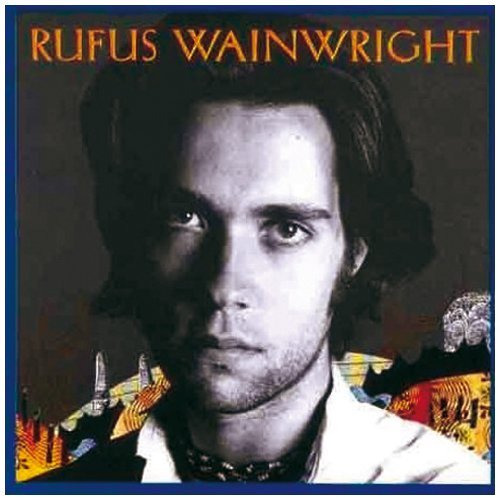
Disc 1. Rufus Wainwright (1998)
When you listen back to Rufus Wainwright’s debut album now, it seems quite tame, almost shockingly minimal compared to some of his later work but it’s still an incredibly powerful piece of work. For a debut, it’s actually quite astonishing! There haven’t been many artists who have appeared on the scene this fully formed, this confident and this shockingly talented from the off. There are a number of reasons for that, one of which is the guiding hand of Van Dyke Parks and another is the nigh on 3 year gestation period but no matter how it came about Rufus Wainwright, the album, really is a joy to listen to. The opening Foolish Love announces his intentions straight away. It begins as a clean, precise piano ballad, introducing you instantly to his powerful voice and his cheeky, passionate, honest lyrical approach,
I don’t want to hold you and feel so helpless
I don’t want to smell you and lose my senses
For two minutes it’s very serious and straight faced and then it just melts into a sort of cod rag-time tempo, waltzing its way around a show tune chorus and it’s here – if you’re one of the lucky people who have yet to open your ears to Rufus Wainwright – that you’ll realize first of all just how different Rufus is. He can be serious, funny, direct and charming all in the same song. It’s such a powerful opener that you feel like you want to just press pause and catch your breath…..and then Danny Boy tumbles out of your speakers and you just can’t help but smile.
This Danny Boy is a long way from the Frederic Edward Weatherly standard; instead it’s an ode to a lost love (and the Danny in question remains the focus of most of the entire album), the gushings of a broken hearted boy and, despite its lyrics, is absolutely gorgeous. Then you get April Fools, which is so ridiculously uplifting and entertaining you expect it to be outlawed in a number of territories. In My Arms is as seedy as a 19th century Paris brothel and practically whiffs of opium and absinthe, Beauty Mark is a lot of fun and Baby is just gorgeous. It’s an intimate song but the strings just stretch the song out into something reminiscent of the great MGM musicals of the Technicolor age. It is quite stunning and has never lost its impact.
Before you think this article is just going to be a relentless list of gushing fandom, I feel it right to highlight the album’s weaker points. Millbrook is possibly the first point at which he was overreaching himself somewhat, but you won’t notice that because it’s simply too powerful (if overblown) an arrangement for you to care. Barcelona has admittedly lost some of its charm for this reviewer over time but I still wouldn’t advise you to skip it. I’d find it hard, however, to recommend Damned Ladies as I’ve never been entirely sure as to what it was trying to be and then you have Matinee Idol, which is just insane. Then again, it’s so off the wall I can’t help but admire its arrangement, even if it doesn’t exactly float my boat. So, sure, Rufus Wainwright has its flaws but let’s not forget that this is a debut album. The best thing about it, however, is that it doesn’t sound like a debut album and the most astonishing thing about it is that it’s by no means his greatest album. What it is, is the perfect place to start your Rufus Wainright collection because, if by any chance you think this is too histrionic and idiosyncratic, you’d better stop here because you haven’t heard anything yet.
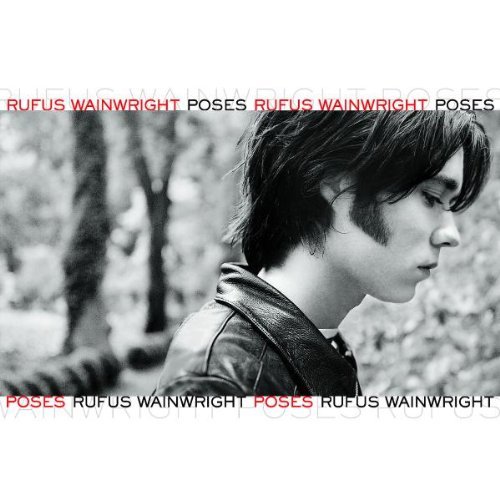
Disc 2. Poses (2001)
You can almost imagine the record company discussions that preceded this album. “Rufus, we love you, but we’d like you to create something a little more commercial.” Poses is a more restrained animal to much of Rufus’ other works, although it’s by no means a straightforward pop album. In fact, it contains some of his most well loved tracks. Recorded after his move from LA to New York and chronicling, at least in part, his bohemian descent into the sex, drugs and rock and roll lifestyle Poses may be somewhat restrained but it’s certainly not for the faint of heart.
Cigarettes and Chocolate Milk is astonishing, playful and powerful in equal measure and one of his most affecting ‘pop’ tracks – albeit one more in love with Rodgers and Hammerstein than Lennon and McCartney. The title track and California are probably worth the price of admission alone but there’s very little you may want to avoid here. The swirling, folk elements of Greek Song may be too much for some and Shadows is neither rocky enough or poppy enough to really satisfy. There’s also Grey Gardens, which I know is a favourite for many but leaves this reviewer pretty cold, but who cares when I can listen to In A Graveyard instead?
Poses may well be the most restrained of Rufus’ albums and was a rather mediocre success when released but that doesn’t mean you should overlook it. Not by any means. Take a look at the title track in a little more depth to see what I mean. It’s a song written by a party animal, a New York socialite spending most of his time moving from one crystal meth infused sex session to the next and still he managed to find the time and clarity of mind to come up with lines like,
I did go from wanting to be someone now
I’m drunk and wearing flip-flops on Fifth Avenue
Those lines could well have been written as some kind of flippant, half serious swipe at himself. An off the cuff remark intended only to keep a song’s momentum flowing and yet somehow he effectively distils his entire life, at that moment, into two sentences. Humour, honesty, intelligence and intellect; all in less than twenty words. Now that’s talent. Poses the song is the one which really made people sit up and take notice. It’s not flashy, it’s not brash and sounds quite simple and yet it is anything but. It’s a song that represents the calling card of an incredibly complex and sophisticated songwriter. One who, even when seemingly out of his mind, could come up with moments of sheer brilliance. Poses is proof that album sales don’t mean everything.
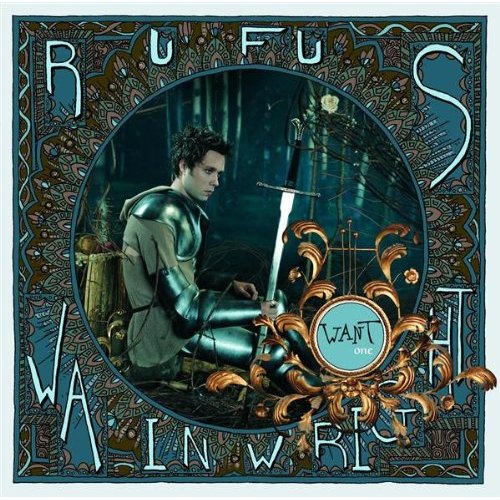
Disc 3. Want One. (2003)
Wow. Just, wow! Listening to this again, in its chronological setting just brings back to me what a jaw dropping experience hearing this for the first time was like. Want One is light years away from Poses and bears fruit to the imagination and breadth of scope that his debut album hinted at. Want One is just a staggering achievement. From the opening Oh What A World, which somehow melds Judy Garland and Ravel together into something magical, it’s a brassy, sassy, bolshy and exuberant record . Oh What A World is so big, in volume and scope that it would be almost frightening if it wasn’t so charming. Trust me, when that snippet of Bolero bursts into life at the 2:43 mark, it’s enough to bring a tear to your eye. It still amazes me that he had the balls to release this as a single. It’s a song that can literally take your breath away and I Don’t Know What It Is is a song to fall in love with. With lines as wonderful as, “Is there anyone else who wears slightly mysterious bruises” and “Get me Heaven or Hell, Calais or Dover,” I Don’t Know What It Is is a delight from start to finish. You can’t escape it, with multiple orchestras and what sounds like hundreds of backing vocal tracks it explodes out of your speakers. But never mind the pomp and circumstance, any song that includes the Atchison Topeka in its lyrics deserves your immediate attention. Vicious World will keep a hold of your heart a little longer before Movies of Myself sidles up, asks you to dance and then proceeds to shake its sexy little arse around in front of you, hypnotically. If you can listen to this without wanting to dance around your living room then you simply have no soul in your body. It’s the kind of song that can simply make you feel good to be alive and would be worth the price of admission if it weren’t for Beautiful Child, which is quite simply a masterpiece.
Beautiful Child floored me the very first time I heard it and it brought Phill Jupitus to tears at the same time, for it was his BBC 6 Music show I was listening to at that moment. It’s one hell of song to be confronted with at 8:30 in the morning I can tell you. It completely overpowered everything else played on the radio that day, that week, that month and it’s never lost its power. Beautiful Child isn’t a wall of sound, it’s a full force hurricane of a track, building, building and building until it erupts into a smorgasbord of pounding drums, screaming vocals and a volley of triumphant horns. It’s an astonishing song, from an astonishing album. I haven’t even had time to mention Go or Go Ahead, the brimming sexuality of My Phone’s On Vibrate For You or anything else on the album, like Want, for example;
I don’t want, no I really don’t want
To be John Lennon or Leonard Cohen
I just want to be my Dad, with a slight sprinkling of my Mother
It’s not supposed to be a song about Rufus but it so obviously is. That honesty, subsconscious or otherwise, is part of what makes his lyrics so fascinating. I think he gets it from his father, mostly. Just listen to Dinner at Eight. Rarely will you encounter a lyric so caustic, uncompromising and devastatingly honest. It can be quite uncomfortable, even distressing, to listen to but it is a haunting and darkly beautiful song.
I could go on, for there isn’t a bad note on Want One, and there are a hell of a lot of notes. Want One is, simply, an essential listen, as is…..
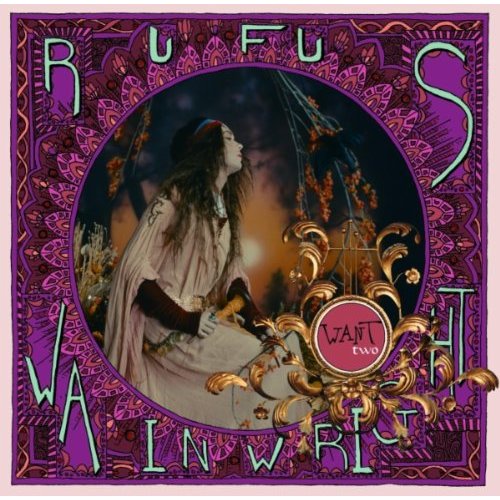
Disc 4. Want Two (2004)
Want Two doesn’t really carry on where Want One left off but they’re definitely companion pieces. This is primarily because all of the tracks came forth during the same recording sessions; although Want Two was mixed and refined later.
After the bombast of Want One, Want Two is a slightly (and I mean slightly) less intense record sonically but that doesn’t mean it’s lacking in the ambition, confidence and swagger of its counterpart. In fact, in songs like Gay Messiah, Crumb by Crumb and the fabulously overindulgent Old Whore’s Diet, Rufus is probably operating at his most egotistical. Old Whore’s Diet, in particular, is a marvel. Clocking in at over nine minutes it tries its hardest to outstay its welcome more than once and is the kind of song that really should not work, on any level and yet succeeds on every one. The lyric is essentially a half joke, nothing more and this chameleon like song changes its colours more often than the Incendiary team have eaten hot pies. No matter which direction the song heads in though – and there are many – it’s held together with such a sheer sense of joy and a delightfully tongue-in-cheek sense of humour that it can even survive an appearance by Antony Hegarty, which could easily have derailed it entirely. It’s so wonderfully preposterous, elaborate and pretentious that you just have to admire it and it encapsulates everything that makes the two Want albums stand out so much.
The arrangements, on both albums, are just incredible. Layer upon layer of sound, mixing a myriad of styles from all kinds of influences. Pop, rock, opera, classical, chamber music, rag time jazz; you name it, it’s probably in here somewhere. Journalists have tried to coin Rufus’ music as ‘baroque pop’ or ‘popera’ but I think that misses the point somewhat. Those terms refer to Rufus as if he’s simply operating in the past but, if anything, his style is so very obviously of his present, that he seems, to me, to be far more modern, even postmodern than many give him credit for. Ok so he’s interested as much in opera and broadway musicals as he is Leonard Cohen and the Beatles but how many people do you know have the ability to mix them all together, in the same song, and make them seem balanced and perfectly suited to one another? Not many, that’s for sure.
The stand out moments of Want Two are the gentler moments, however. This Love Affair, Little Sister and Peach Tree are all beautiful and he’s written few more beautiful songs than The Art Teacher. Rufus is a true master when it comes to writing about obsession and lust and The Art Teacher is one of his finest examples.
Both Wants (One and Two) represent an intense, short period of Rufus’ life where material was simply erupting out of him and this could well turn out to be his ‘golden’ period. Written, predominantly, after his stint in rehab, the sheer amount and quality of the material is astounding but it’s the arrangements that single them out as something extraordinary. The Want albums are as sonically diverse, experimental and ambitious as albums such as Sgt. Pepper’s, Pet Sounds, The Soft Bulletin, Dark Side of The Moon or Deserter’s Songs. They are the sound of an artist striving and succeeding to create something new, something powerful, something unique. If these songs were recorded in any manner they’d be good. The fact that they have been recorded in the exquisite manner they have makes them a rare and beautiful treat for anyone who listens to them. If you haven’t figured it out quite yet, the Want albums should be sitting on your shelf right now.
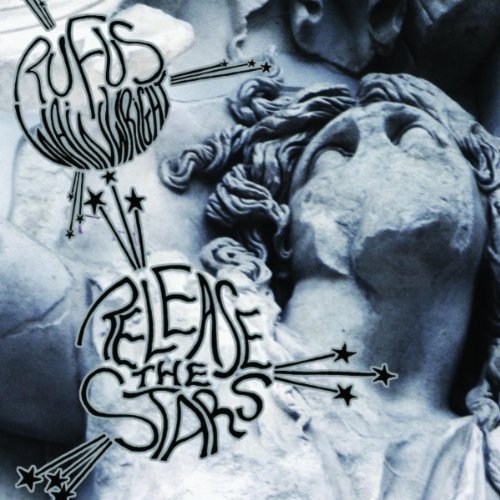
Disc 5. Release the Stars (2007)
No matter how good an album Release the Stars is – and it is a good one – it still feels like somewhat of a disappointment after Want One and Two. That may seem harsh and unfair but Rufus probably understood the pressure he’d put on himself and so the album begins with a song entitled Do I Dissappoint You? Clever bastard.
The song itself is delightful and elsewhere Between My Legs, which is as sexual in content as its title suggests, and the undeniably gorgeous title track make the album well worth outlaying for. Oh, and let’s not forget Slideshow.
Or Tiergarten. Or Leaving For Paris no.2
Or…sod it, just buy the bloody thing.
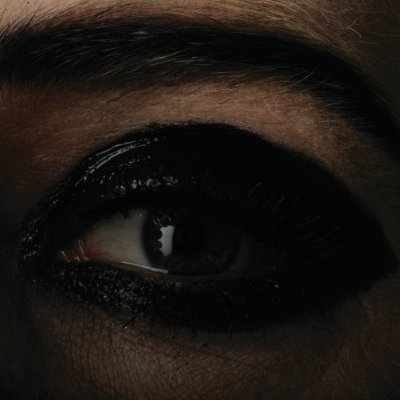
Disc 6. All Days Are Nights: Songs for Lulu (2010)
Chronologically, All Days Are Nights isn’t what Rufus went and did next but it is his next official ‘studio’ album and so it sits here in the House Of Rufus rundown. If you want the full chronological story, you’ll find it in the book, on the dvds and elsewhere so head off there or rearrange this article to suit, if you’re that anal. Anyway, listening to All Days Are Nights here, in this order, the contrast between what went before is heightened incredibly. Flippantly referred to by a friend of mine as “One man and his piano”, All Days Are Nights is shockingly sophisticated, even for Rufus Wainwright. Mainly, it’s just so much more mature than anything he’s released previously. These aren’t so much songs as a collection of performances, recitals even. The piano arrangements are daringly difficult at times (Who Are You New York?, Give Me What I Want And Give It To Me Now!) and complex but the album still feels quite accessible. The reason, as always with Rufus, is the intensity of his performance and unflinching honesty of his lyrics. As usual with the Wainwright/McGarrigle family, their problems and frustrations are discussed and aired in public (Martha, for example) and far more elegantly than you expect they are/were behind closed doors. You simply have to admire the bravery of the man to put some of these things out into the world.
All Days Are Nights: Songs For Lulu places music to three of Shakespeare’s sonnets and surrounds them with 6 original compositions but in style and structure the whole album feels of a piece. It’s not so much a one note performance but the album certainly feels more direct and deliberate in its intentions than any of his other work. It’s not about experimentation, it’s more about challenging himself. It’s not one for the pop loving crowd but it really is a beautiful, classy and impressive album and well worth your time if you’re prepared to give it.
Stay tuned for part two, where we discuss Judy Garland, Milwaukee and more…….
